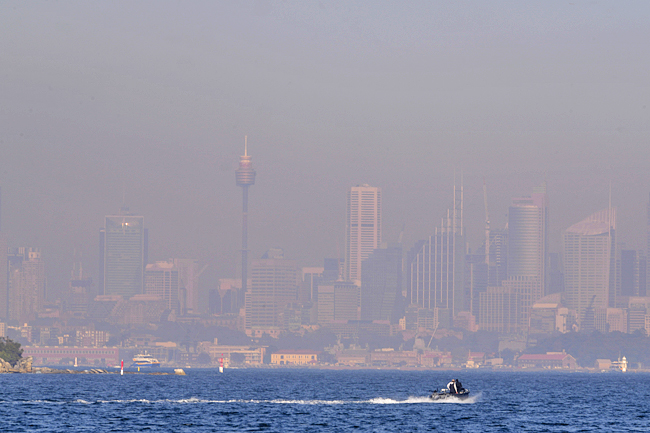SYDNEY (AP) – Sydney experienced its first total fire ban in almost three years yesterday and several schools along the New South Wales state coast to the south were closed because of a heightened wildfire danger, caused by unusually hot and dry conditions across southeast Australia.
Authorities forecast the most destructive wildfire season during the approaching Southern Hemisphere summer in Australia’s populous southeast since the catastrophic Black Summer fires of 2019-20 that killed 33 people, destroyed more than 3,000 homes and razed 19 million hectares.
A total fire ban has been declared for the Greater Sydney area and the coastal communities to the south. It is the first such declaration for Sydney, Australia’s most populous city after Melbourne, since late November 2020.
Sydney matched its September maximum temperature record of 34.6 degrees Celsius yesterday. The Australian Bureau of Meteorology described it as an unusually warm start to spring for much Australia’s southeast.
“We are in this run of very, very warm weather which hasn’t been seen in many, many years,” the bureau’s senior meteorologist Miriam Bradbury said.

Authorities said 61 wildfires were burning across Australia’s most populous state yesterday, with 13 burning out of control.
Authorities declared a “catastrophic” fire danger along the south coast of New South Wales, the highest level of danger in a five-tier rating system.
State education authorities said 20 schools in south coast communities closed yesterday because of the fire danger they were exposed to.
The Bureau of Meteorology yesterday declared an El Nino weather pattern, which is associated with hotter and drier conditions across the Australian east coast, after three successive La Nina events brought milder and wetter conditions. The World Meteorological Organization declared the onset of an El Nino in July.
“In all likelihood, we can expect that this summer will be hotter than average and certainly hotter than the last three years,” bureau manager Karl Braganza said.




